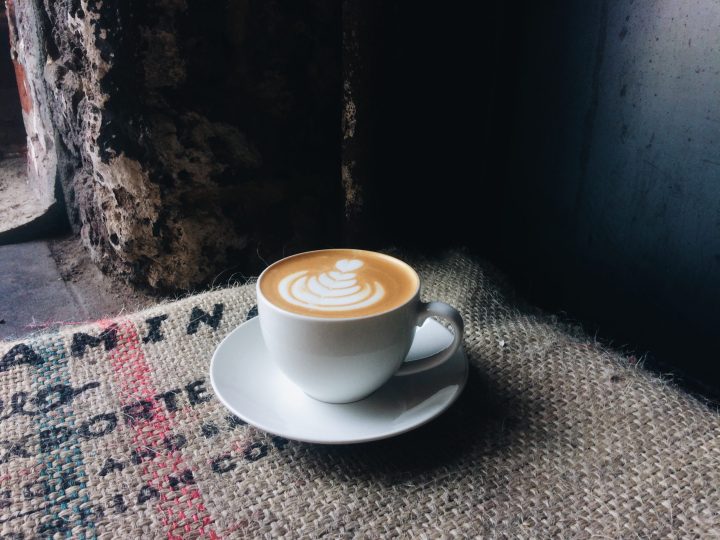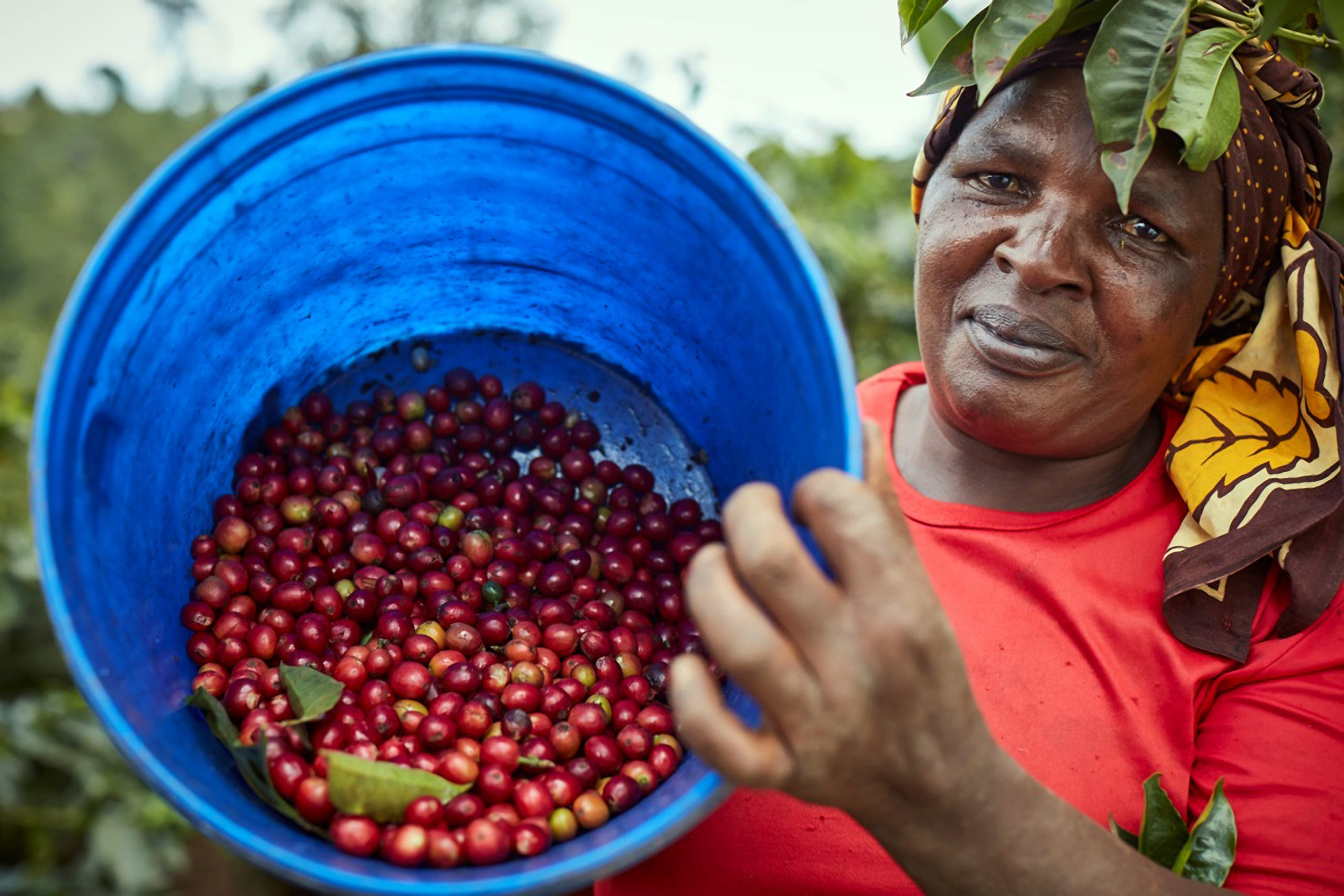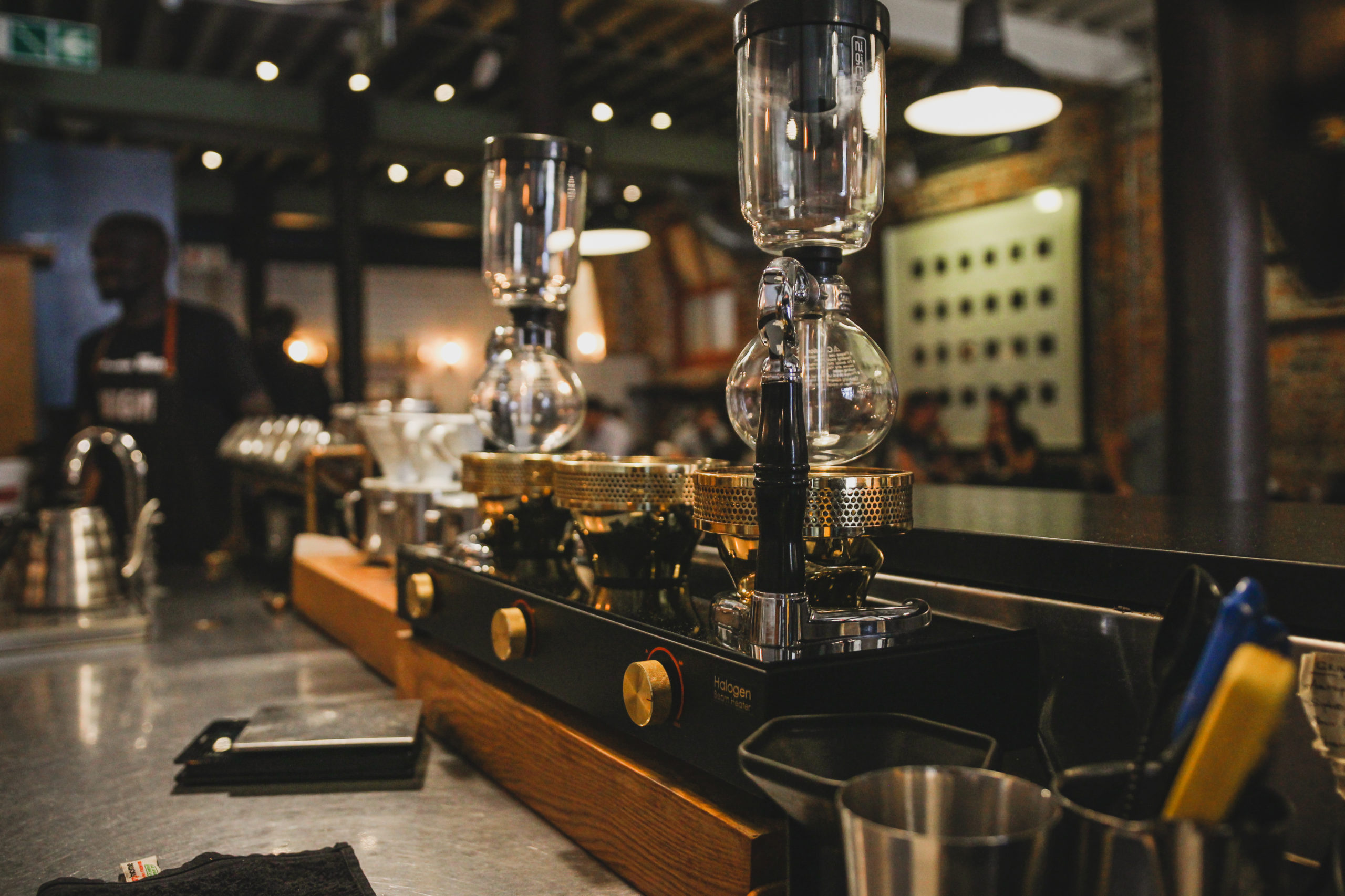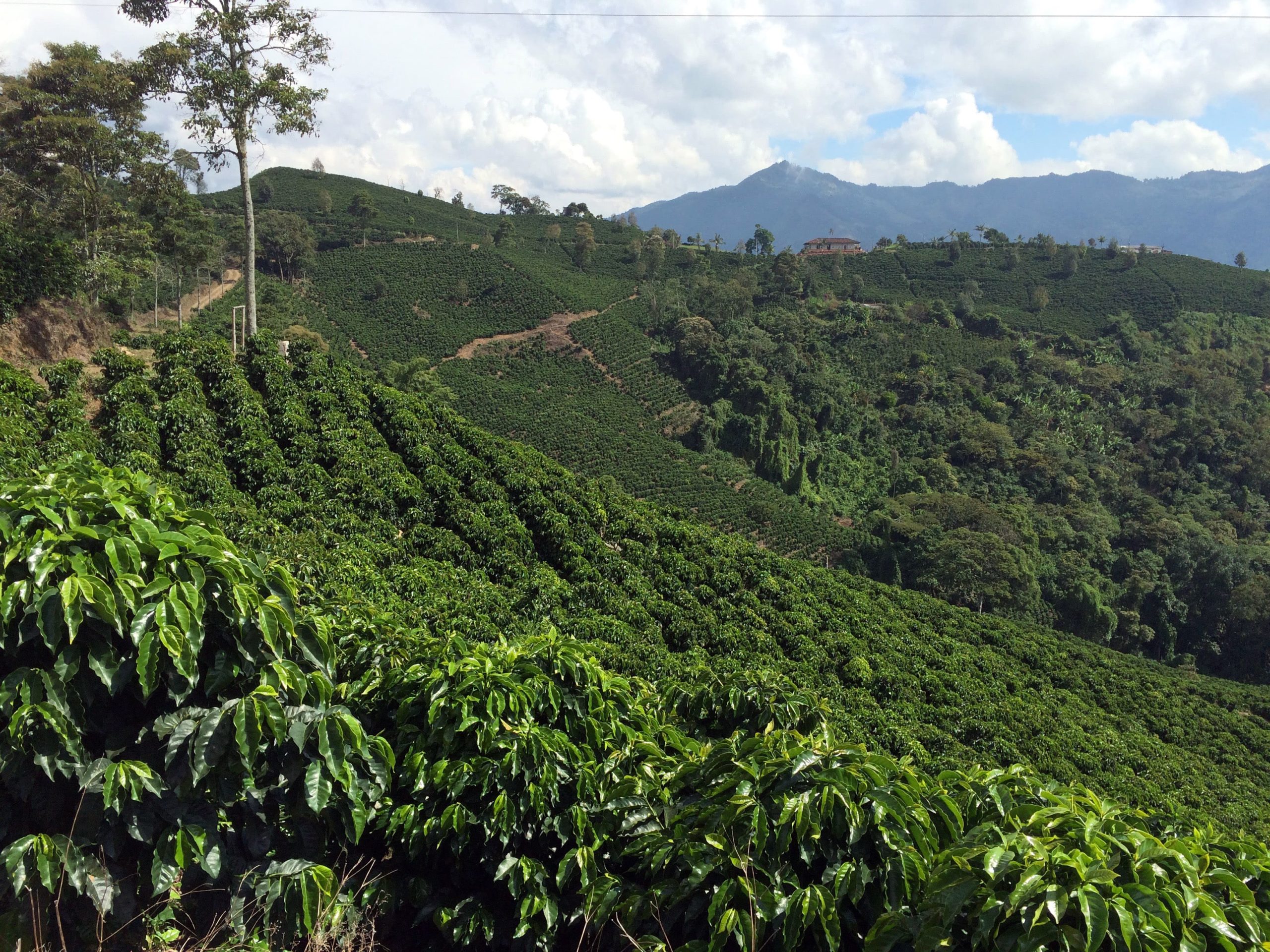BUT FIRST, COFFEE
The sensory joy of the Java Jive

Aficionados and lovers of the dark and dreamy brew will go to great lengths for the perfect barista-worthy cup.
Not all coffee drinkers are created equal. Some are happy with – gasp! – instant while at the other end of the spectrum are those who measure water in grams, monitor temperature, and seek out the highest quality beans from far-flung reaches of the planet.
When a person speaks of an “acquired” taste, it means – literally, it’s in the dictionary definitions – something you don’t like at first but as you eat more, you eventually begin to enjoy it. This could be any foodstuff on the planet, and I’m pretty sure we all have a box full of flavours we’ve worked through, and those that remain abandoned.
They’re often strong, pungent, powerful things, like olives or durian, although the latter falls squarely in my category of “nope”; I’m not even going to try again. Two things – drinks – are success stories for me: whisky and martinis. Oh, and a third… there was a time when I didn’t fancy red wine. The one that still evades me, to a certain extent, is coffee.
I love the smell of coffee, the roasting beans especially. I adore the idea of coffee; it’s sexy. I can do a flat white, a cappuccino, occasionally an Americano without milk (I don’t take sugar anyway so I’m safe there). But the espresso continues to elude me. It makes me sad. I also want to be that cool person at the table who can down the shot – but more important, enjoy it. Years of tequila and Jagermeister have taught us nothing if not that it’s possible to suck down something you hate. Repeatedly. Without ever acquiring the taste.

Cupping is the process of tasting by producers and buyers around the world to check the quality of a batch of coffee. Joel Singer, left, and Grant Rattray, the late MD of Cup Of Excellence. (Photo: Supplied)
And so we come to cupping. This is how coffee is tasted by producers and buyers to check the quality of a batch of coffee. In cupping, coffees are scored for aspects such as cleanness, sweetness, acidity, mouthfeel and aftertaste. This is advanced stuff, but I do believe that with practice, diligence and dedication, anyone can learn how to do it.
The process (I’m simplifying it) begins with grinding the roasted coffee beans, which are then placed into cupping bowls, two per sample. Smell that, and assess. Heat the water to a precise temperature, and pour a precise amount into each bowl. Smell it again, assess. After a precise amount of time, break the crust with a spoon, pushing the grounds to the back. Using spoons, remove all the grounds and foam; after the designated time has elapsed and it’s cooled, you can taste the coffee by slurping it with a spoon. Like when you taste wine and swirl it in your mouth, sucking in air, sometimes “chewing” it, this lets the coffee spread all over your tongue so you experience the full range of flavours and characteristics.
While this is normal everyday procedure for the coffee experts, there are lots of people to whom coffee is life, and who’d like to learn how to do this. Origin in De Waterkant, Cape Town, teaches cupping, among a bunch of other courses from professional barista training to how to use your new brewing device.

With the right know-how, you can create a coffee at home as good as a barista makes it. (Photo: Supplied)
“People think good coffee has to be complicated. My explanation is that it’s not, if you use basic parameters,” said owner Joel Singer. “If you buy an aero press it comes with a guide. If you follow those simple instructions at home it’s going to be a great cup of coffee.”
Why coffee will most likely taste better at the coffee bar is because the barista will fine-tune it, a gram of coffee here, a gram of water there; yes, they measure liquid by weight, not millilitres like the rest of us. Where a homemade coffee will fall down, said Singer, is if you want to make an espresso but you don’t want to put in the effort to have good skills. “With espresso things can go very wrong, very easily,” he said. Plunger or pour-over methods are more forgiving.
Then there are the Nespresso machines, and the 350,000 Nespresso-compatible machines in South Africa, said Singer. “A lot of people have chosen that as their brewing method.”
Well, jolly good for them. Apparently these machines are the simplest in the world to operate but I cannot master the damn contraptions. Compatible is one thing, with generic crossover pods, but trust me, they do not all work alike. I’ve encountered lots of different ones in hotel rooms – where they make more sense than loose grounds – and the pods go in in various ways, and the on/off/big cup/small cup buttons are not uniform. You don’t want to know how often I’ve had either overflow or barely enough to fill a thimble.
Singer guffawed, and you should have seen the face of Resianri Triane, a visitor from Indonesia who was at Origin at the behest of the Indonesian Trade Promotion Council to share her country’s best coffees with South Africa. “Bianca! It’s the easiest machine in the world!” she said.

Coffee is a fruit – a brewed drink prepared from roasted coffee beans, the seeds of berries from certain Coffea species. (Photo: Supplied)
Coffee can be intimidating. At the upper levels, it’s a purist’s game. But if you push the crust aside, you’ll find underneath that coffee people are a lot like wine people. They want you to drink their beverage, any way you can.
There’s nothing wrong with a capsule, said Triane. “It’s easy and practical. You cannot push people to drink certain coffee, so what we do at home, our customers even drink coffee with milk and sugar. Lots of sugar. That’s the door for them to enjoy the coffee so we let them. So if Nespresso is the way the first time, we should let them,” she said.
Singer agrees with Triane about the convenience of the machines. But what worries him, and what he believes should worry people in coffee-producing countries, is the price. “That capsule has 6 grams of coffee in it. Nespresso charges R90 for a tube of 10, so you’re paying the equivalent of R1,500 plus for a kilo of coffee. I struggle to sell someone coffee at R500 a kilo. You can drink some of the best coffee in the world for less than it costs for that capsule. The capsule itself costs more to manufacture than the coffee inside.”
However, he does concede that Nespresso itself is “doing a good job of pushing better coffees, more diverse coffees, and premium reserve coffees”.
Origin was founded in 2005, in a former tobacco warehouse built in 1901. “I’ve been packing capsules for 15 years and never released one because it was never good enough,” revealed Singer. “It’s a challenging delivery method to get the best flavour out of a cup. A lot are over roasted and ground too fine, or over extracted to make them taste rich and strong but without the flavour of the coffee coming through,” he said. Singer said he is finally on the verge of releasing the Origin capsule.

Take a seat at the bar at Origin and try some less conventional brewing methods. (Photo: Supplied)
Some fun facts: coffee is the most traded food commodity in the world. Two billion cups of it are consumed daily. Brazil is the largest producer, accounting for about a third of all coffee. It’s followed by Vietnam (bet you didn’t see that coming), Colombia, Indonesia, and Ethiopia.
Vietnam is a large producer of low quality robusta but with the potential to produce good coffee, said Singer. “They do hardly any arabica and we don’t roast much robusta locally.”
Robusta doesn’t have much in the flavour department, said Triane. “You can taste nuttiness and chocolate. It has strong body, and more caffeine; one cup of robusta equals two cups of arabica.”

Coffee plantation, Santa Barbara, Colombia. (Photo: Supplied)
So what about the claim some coffees make, to be the strongest in the world and guaranteed to keep you awake for eight days straight, like Hank Williams the Third and the pills he took?
“Some varieties are higher in caffeine but there’s not much difference,” said Singer. It has more to do with the roasting, during which caffeine is not destroyed, and then once ground, how many grams you use. Generally speaking, the darker the roast, the stronger the coffee.

Coffee seeds – beans – were first roasted in Arabia in the 15th century. (Photo: Supplied)
Top quality Indonesian coffees are not widely available in South Africa; Father Coffee in Joburg and Rosetta have it, and hopefully Origin soon, said Triane, who is a trainer at Caswell’s Campus in Jakarta.
“I teach baristas, and a course called advanced sensory, so it’s more like how to evaluate coffee and how to know the character and quality of the coffee,” she said. “It’s for anyone who is interested, especially those who want to be professional. We do basic cupping like this,” she said, indicating the activity going on around us, upstairs at Origin, where professionals and home enthusiasts had gathered for the unique opportunity to sample 12 of Indonesia’s best coffees.
“Many Indonesians are really interested in learning more about coffee now. Even if they just brew at home, they want to know the details about the coffee, where it comes from and the best way to make it,” she said.
“We have many, many coffees in Indonesia. We had a very tight timeline to collect all the coffee and of course Indonesia is an archipelago so we had to really carefully choose the coffees we think are the best. This is the first time we are bringing our coffee to South Africa so we want to make a good impression.”
Triane and her colleague, professional barista and trainer Muhammed Aga, had a mere two weeks to make their selection of what to present. “We chose farmers we know, who we work with in our company. We tasted all of them before we sent it here, to make sure we chose the right coffee. We had a very long process. Twelve is a good number,” smiled Triane.
The response to the cupping sessions was enthusiastic and amazing, said Triane. “They were curious about Indonesian coffee but some were skeptical because of previous experience so it was eye opening for them to see Indonesian coffee is not always unpleasant. We also have fruity characteristics, very pleasant, clean and good quality coffee.”
Singer is deeply invested in South African coffee culture and sees no reason why we shouldn’t be among the best in the world. “We taught ourselves how to roast here, in this building where we’re sitting now. We’ve trained 3,500 baristas, helped launch the Speciality Coffee Association which has since flourished, helped launch the barista competition which we won the first two and three times after that, we’ve sent baristas to compete in Japan, Korea and Melbourne.
“The mission was to fix coffee in SA. How do we do it, how do we expose people? One cup at a time, one conversation at a time, one experience at a time.
“People should come here and have a wonderful cafe experience, but they should converse with people who know what they are talking about, who are experts in their own way, drink coffee poured from top quality equipment by very strong baristas who can get the best out of that coffee. Taste coffee at the best it can be,” he said.
“I’m not a believer in telling people how to make their coffee. I want to make beautiful coffee and I want people to enjoy it.” DM/TGIFood
For more information, click here.
The writer supports Ladles Of Love which in six years has grown from serving 70 meals at its first soup kitchen to one of the most prolific food charity organisations in South Africa.





There appears to be an issue with the photos (or the links to them) on this page. Only the image at the top of the page is displaying.